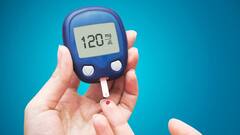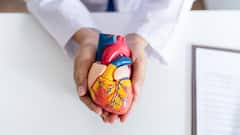What Are Microplastics And How They Can Impact Male And Female Fertility
Microplastics found in daily objects and food harm fertility by accumulating in reproductive tissues, disrupting hormone levels, and impairing sperm and egg quality.

By Dr. Archana Dhawan Bajaj
Most of us understand the fundamentals of a healthy lifestyle: consume plenty of fruits and vegetables, avoid coffee and sugar, do not smoke, exercise frequently, and so on. Taking care of our bodies not only improves our general health, but healthy decisions like these can also increase fertility.
But what about the decisions we make without even realising it?
Numerous studies have demonstrated that our surroundings, over which we often have little influence, may have a substantial impact on our health. And a recent study has shown that some chemicals found in daily objects, food, and water have a harmful influence on fertility.
How Microplastics Can Affect Male And Female Fertility
Even the most environmentally conscientious among us cannot totally avoid using plastic. It may be found in a variety of things, including food packaging, furniture, clothing, and more.
When plastic is exposed to sunlight/heat, wind, and water, it dissolves into tiny particles known as microplastics. These non-biodegradable materials enter our ecosystem and can eventually poison our food and water. When we consume them, they build in our tissues and can impair how our bodies operate.
Microplastics in the reproductive system disrupt the blood-testis barrier, reducing spermatogenesis in men and causing placental dysfunction, ovarian atrophy, endometrial hyperplasia, and fibrosis in females.
Furthermore, microplastics have the ability to influence offspring's lipid metabolism and reproductive capabilities.
Recent research indicates that these microplastics might directly influence sperm quality, thereby impacting fertility.
Microplastics accumulate in tissues, including the testicles. They produce inflammation, which results in tissue damage. This can impair both sperm production and sperm quality, making it more difficult for a couple to conceive.
The two most common microplastic contaminants are phthalates and bisphenol A (BPA), both of which are endocrine disrupting compounds that can have an impact on fertility. Bisphenol A (BPA) is found in food packaging such as plastic boxes, cash-register receipt paper, and the lining of canned goods. BPA is released at high temperatures (e.g., in the microwave or dishwasher) or when it comes into touch with acidic foods.
Phthalates are used to make plastic supple and flexible. These EDCs have been found to have an influence on women who are attempting to conceive. They can lead to poor egg quality or alter the genetic material during the early stages of fetal development. They may also induce early puberty in young females.
EDCs have been demonstrated in males to reduce testosterone levels, which can lead to poorer sperm production and quality.
How To Avoid Microplastics
While certain factors are beyond our control, one may take a few basic precautions to decrease the exposure to microplastic particles and EDCs.
- Whenever feasible, consume unprocessed meals, ideally pesticide-free organic foods.
- Do not use pots and pans coated with teflon or other chemicals.
- Never drink from plastic cups or bottles; instead, go for reusable stainless steel or glass containers.
- Try not to microwave food or beverages in plastic containers.
While research in this area is still in its early stages, couples who are having difficulty conceiving should do all possible to reduce their exposure to microplastics.
Dr. Archana Dhawan Bajaj is a Gynaecologist, Obstetrician and IVF Expert at Nurture IVF Clinic, New Delhi.
[Disclaimer: The information provided in the article, including treatment suggestions shared by doctors, is intended for general informational purposes only. It is not a substitute for professional medical advice, diagnosis, or treatment. Always seek the advice of your physician or other qualified healthcare provider with any questions you may have regarding a medical condition.]
Check out below Health Tools-
Calculate Your Body Mass Index ( BMI )
Trending News
Top Headlines











































